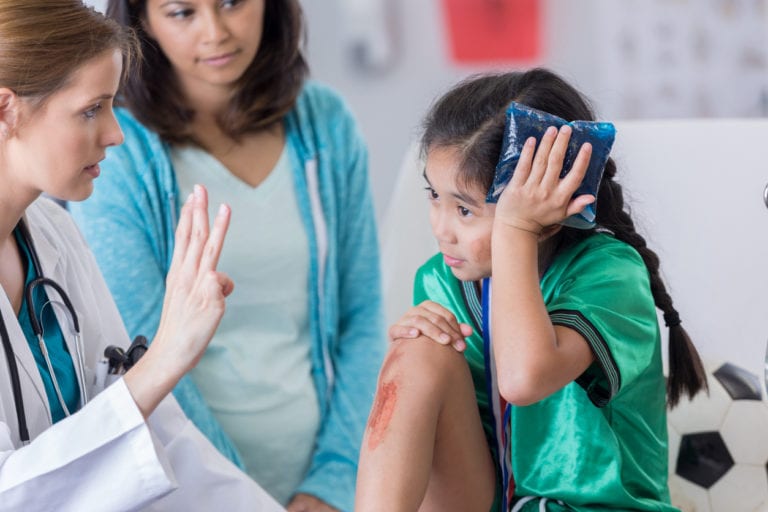Medicine or Malarkey: 5 Concussion Myths Debunked
August 19, 2019

As children grow and become more active in sports, one worry may be prevalent in the minds of parents: What do we do if our child gets a concussion?
Given the number of myths out there about concussion, it can be difficult for parents to make the best decisions for a child who wants to play sports or who already has experienced a concussion.
Need an urgent clinic near you for concussion assessment / evaluation? Find your nearest clinic here.
Want to sort out fact from fiction? Here is a cheat sheet for parents looking to figure out the difference between medicine and malarkey when it comes to concussions.
Concussion Myth #1 – Don’t Let Them Sleep!
The concussion sleep myth may be the most common myth of all. How many times has someone advised you to keep a concussed patient up all night?
While someone who experienced a concussion should be monitored for 4 hours after the inciting incident, what they really need after that is rest. You can let them sleep for a few hours at a time during the initial monitoring period.
Gently wake the child every few hours during the first 4 hours and conduct a brief check-in to make sure that no drastic changes in thinking or behavior have taken place. After that, they should be allowed to rest for up to 72 hours, as needed.
Concussion Myth #2 – Concussions Only Come From Getting Hit in the Head
Not necessarily. While a direct hit to the head is the surest road to a concussion, any jolt that causes the brain to move inside the skull can lead to a concussion.
This means that chest injuries, neck injuries, or even a fall or blow to the body can potentially lead to a concussion.
Concussion Myth #3 – You Need to Get “Knocked Out” to Get a Concussion
This is another common one. Many think that if you stay conscious during a traumatic incident, you are not at risk of a concussion. The truth, however, is that a whopping 90 percent of concussions result from events that did not involve a loss of consciousness.
Concussion Myth #4 – Don’t Give the Patient Any Pain Medication after a Concussion
Well, yes and no. You should indeed avoid OTC analgesics that can thin the blood, such as Advil or Aleve, for at least 12 hours after the incident.
Acetaminophen, such as Tylenol, on the other hand, is acceptable but only after the four-hour waiting period.
Facts about Concussions
Now that we’ve gone through some common myths, let’s make sure you have the facts under your belt. If your child gets a concussion:
- Do watch them closely for the first four hours. If no severe symptoms present, such as a loss of consciousness for more than a minute, seizures, vomiting, or extreme agitation and restlessness, let the child rest, then take him or her to a doctor for a follow-up in the next couple of days.
- Do take a child to the emergency room if any severe symptoms present.
- Do let them engage in light activity after the initial rest period. Going for a walk or riding on a stationary bike are good ways to start out. No child should return to a sport as long as symptoms are present.
- Do limit screen time during the initial rest and recovery period. Once a child has had time to recover, Allow some screen time so that they can socialize. Being isolated from friends and teammates by an injury can compound the difficulties inherent in recovery.
Proper management moving forward is the best path to recovery and the best way to prevent a recurring injury. Make sure to consult with your child’s physician and develop a detailed plan moving forward.
